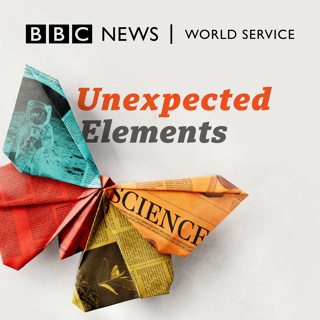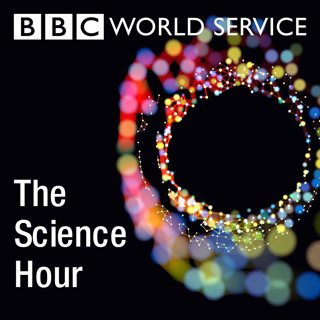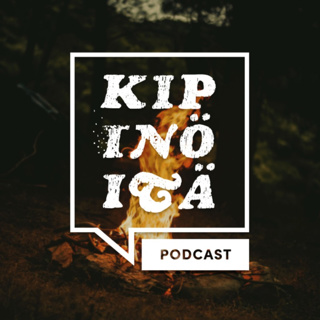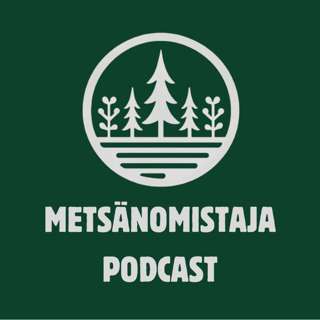
Punk rock science
A dinosaur with metre-long spikes has been discovered. The species, Spicomellus afer, is from the Jurassic Period and is the oldest example of a group of animals called ankylosaurs. The scientists behind the research have dubbed the new dinosaur the ‘punk rock dinosaur’, which led the Unexpected Elements team to go out searching for the science on all things punk, rock, and heavy metal.First up, we find out what other punks might be lurking in the fossil record. And meet a pair of unconventional molluscs. Next up on the set list, we investigate the physics underpinning mosh pits and the implications this could have for crowd control. We speak with Anirudh Patel, an astrophysicist from Columbia University, who is scouring deep space to find out more about the origins of heavy metals. And we dig into the unexpected link between water pipes and IQ. All that, plus many more Unexpected Elements.Presenter: Marnie Chesterton, with Camilla Mota and Meral Jamal Producers: Alice Lipscombe-Southwell, with Lucy Davies and Robbie Wojciechowski
5 Syys 49min

Where do beaches come from?
It’s August, and in the northern hemisphere, many people are hitting the beach to escape the summer heat. And that inspired us to investigate bucketloads of beach-based science. First up, we find out about the forces that build and shape the seaside. Next, we discover that the waves from the Hunga Tonga-Hunga Ha’apai eruption reached the atmosphere. Speaking of waves, we’re joined by Dr Edward Hurme from the Max Planck Institute of Animal Behaviour, who tells us about his research into surfing bats. And why are beaches disappearing?All that, plus many more Unexpected Elements. Presenter: Marnie Chesterton, with Tristan Ahtone and Phillys Mwatee Producers: Alice Lipscombe-Southwell, with Imaan Moin, Robbie Wojciechowski and Lucy Davies
29 Elo 49min

Mountains of overtourism
As Nepal makes 97 peaks free to climb, we look at the science of overtourism – especially on mountains. How do so many visitors affect these environments, and what can be done? Plus, are mountains carbon sources, or carbon sinks? And why do we feel the drive to summit these peaks anyway? A psychologist specialising in thrill-seeking explains. Also on the show, we take your questions, read out your comments, and look at what it takes to physically measure the height of a peak like Everest.All that, plus many more Unexpected Elements. Presenter: Caroline Steel, with Chhavi Sachdev and Leonie Joubert Producers: Margaret Sessa Hawkins, with Alice Lipscombe-Southwell, Imaan Moin and Lucy Davies
22 Elo 49min

Why do we follow trends?
What's got rabbit-like ears, huge eyes, nine teeth and a demonic grin? It’s Labubu! These ugly-cute toys have gone viral online, largely thanks to social media’s trending machine. Their fame was previously limited to China and parts of Asia, but since 2024 their popularity has grown and the dolls can now be purchased in more than 30 countries round the world. This week, the global demand for Labubu inspired us to play around with trend-based science. First up, we hear how the special sauce behind TikTok’s algorithm helps drive viral trends. Next, we find out that humans are not the only ones that love a fad – chimpanzees are susceptible to them too!We then discover what connects the hugely popular Beanie Baby toys of the 1990s with modern CubeSat exploration, thanks to aerospace engineer Professor James Cutler, from the University of Michigan. Plus, we discuss a weird object thousands of light-years away that could lead to new physics.And why do we find songs annoying after multiple listens?All that, plus many more Unexpected Elements. Presenter: Marnie Chesterton, with Godfred Boafo and Edd Gent Producers: Alice Lipscombe-Southwell, with Imaan Moin, Lucy Davies and Margaret Sessa Hawkins
18 Elo 49min

Floods, mangroves and rampaging tractors
This week, floods have hit the global headlines. First up, we delve into the various reasons why floods form. After learning about the causes of floods, we discover a nature-based solution in the form of mangrove forests. Laura Michie from the Mangrove Action Project tells us why these ecosystems are important, and how they can protect coastal zones.We also find out that humans have moved so much water around the planet that we’ve shifted the location of the geographic North Pole. Plus, a rare flooding event is currently taking place in the Australian Outback, awakening an ecosystem after years of dormancy. And what could happen when hackers take control of tractors?All that, plus many more Unexpected Elements. Presenter: Marnie Chesterton, with Andrada Fiscutean and Sandy Ong Producers: Alice Lipscombe-Southwell, with Lucy Davies, Debbie Kilbride and Margaret Sessa Hawkins
8 Elo 49min

Traffic science
This week, a viral video of a robo-traffic-cop in Shanghai has the team contemplating the science of traffic. How do traffic jams with no discernible cause actually form? Does the weather experience traffic jams? And why do our cords also seem to get tangled in their own little cord-traffic-jams no matter how hard we try to keep them separate?Christine Yohannes from Addis Ababa, Ethiopia and Tristan Ahtone in Helsinki, Finland, join Marnie Chesterton to discuss all this, plus many more Unexpected Elements.Presenter: Marnie Chesterton, with Christine Yohannes and Tristan Ahtone Producers: Margaret Sessa-Hawkins, with Alice Lipscombe-Southwell and Lucy Davies
1 Elo 49min

Trailer: 13 Minutes Presents: The Space Shuttle
The epic space story of a sci-fi dream that changed spaceflight forever. Told by the Nasa astronauts and team who made it happen. Our multi-award-winning podcast is back, hosted by space scientist Maggie Aderin-Pocock. She tells the story of triumph and tragedy - of a dream that revolutionised modern space travel forever.You can listen to the trailer here. To hear episodes, search for 13 Minutes Presents: The Space Shuttle, wherever you get your BBC podcasts. 13 Minutes Presents: The Space Shuttle is a BBC Audio Science Unit production for the BBC World Service. Theme music by Hans Zimmer and Christian Lundberg, and produced by Russell Emanuel, for Bleeding Fingers Music. Archive: Mission audio and oral histories, Nasa History Office.
28 Heinä 3min

The science of ageing
This week, Cameroon’s Paul Biya announced his plan to run for an 8th term as president at the grand old age of 92. So, we have elected to investigate the science of ageing.First, we ask if a 60-year-old brain is as sharp as a 20-year-old one. Then, we find out about parts of the world that boast impressively long life expectancies. Have these places found the secret to longevity, or are they not what they seem?Next up, we talk to Professor Thomas Boothby from the University of Wyoming about tiny, eight-legged animals called tardigrades, and what they could teach us about living longer. We also dig into the story behind a recently uncovered ancient Peruvian city, before finding out the science behind so-called ‘old wives’ tales’.All that, plus many more Unexpected Elements.Presenter: Marnie Chesterton, with Camilla Mota and Phillys Mwatee Producers: Alice Lipscombe-Southwell, with Margaret Sessa-Hawkins, Lucy Davies and Robbie Wojciechowski
25 Heinä 49min






















